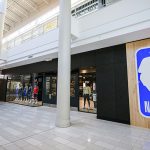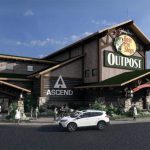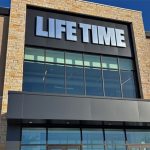B.O.S.S.: How have things progressed for prAna since the Liz Claiborne deal?
BT: The primary benefit is the autonomy. What we make, How we make it who we sell it to what market we are in-those are all our decisions, 100%. They bought into a plan from the beginning that we laid out for them. This is our product business plan, which is staying in our current markets and going deeper in the stores we are in and they are honoring all of our decisions towards that.
Even with something like collecting money from the stores. Accounting efficiency would dictate that everything go through Lizs A.R. department. We said, “No wait a minute, thats a branding issue.” The same voice has called them for six or eight or however many years-I mean, every once in a while Pam or myself call. So, those kinds of contacts and personal interaction are important to our marketplace. When we told them this, immediately they yielded and said okay.
They didnt just put us in this mold and say “heres an acquired company, heres how we do it.” They are listening to the special requests and catering specifically to our market.
B.O.S.S.: When the deal was first announced there were a lot of people saying that prAna would end up in Kohls. Is there any truth behind that?
BT: The exact opposite is true. They are all about being true to this core audience. Thats why we are here with them. This is a space that they did not have a part in, and probably could not have a part in. First and foremost, thats one of the reasons we went with them, and we are seeing it play out here just like we anticipated.
B.O.S.S.: How has the acquisition impacted design and development?
BT: We talked about-there are design forums every 60 days with designers from many of the Liz brands. With all kinds of trend ideas, marketing, people from completely different industries to inspire and share ideas. Its kind of a creative gathering of ideas. Three or four day long intensives to inspire everyone and get the home team excited and to open their eyes and look outside of the box they are in. And they bring in some really great speakers-that just happened a couple of weeks ago in New York.
They bring in a nice panel of designers to share and make everyone better and we are getting a lot out of that.
B.O.S.S.: Are there any benefits financially?
BT: Capital to grow is obviously a huge thing. When we started prAna out of our garage in the beginning, it was very hand to mouth. We used our house as collateral on the loan. There were times it would be tight and we had to go lean and mean. You know the company needs the resources and we needed to tighten the belt at home. While we ramped up production or whatever, we had to skimp for 60 days while things worked through.
So even after 13 or 14 years, to grow like we did without outside investment-we never brought in an outside partner-the burden was on Pam and myself to fund that growth. Thats the nature of the game.
So thats eased up. We need money to grow and but stuff and for production and the response is, “What do you need?” Its kind of automatic. In the future too, we have access to resources to grow and for line extensions, whatever we want to do. Were accountable of course. We need to show a return on that investment. But the access to capital is unlimited for a company our size.
B.O.S.S.: What about benefits with sourcing & fair labor?
BT: On the product side, as far as fair trade, we used to visit our overseas facilities once a year. Were still majority made in the U.S. 60% is manufactured right here in California, but the other 40% is sourced overseas. We would visit, send a production person over once a year or so to visit the factories. Now with Liz, they are such fair trade experts; they are leading the field in that. They have people on the ground in their factories every day. We havent moved into all of their factories as of yet. This is stuff we will start seeing in Fall 07 and in future year.
They have, from their quote, a couple of thousand people on the ground watching production in factories they dont even own. There are people watching their production every day. They are super buttoned up there and under crazy scrutiny. So, we were vigilant before, but now we know we can feel better about how our clothes are made.
We wont necessarily move into all Liz factories. If it makes sense for the product, we will move into one of their existing factories. They have visited some of our factories and said, “This has to be changed and this has to be changed. You have six months.” Others they went in and said, “okay these guys are good.” But the fact is that they all need to be approved.
Even domestic sourcing-we are lined up with Lucky Jeans and those guys, with their denim and their nice lightweight cotton tees and that U.S. made stuff-sources that we never knew were right in our backyard in L.A. here. We are getting turned on to amazing quality and pricing in a lot of ways.
B.O.S.S.: What about your use of Organic Cotton?
BT: Thats a whole other side to this deal too. If we can get economies of scale with organic cotton purchasing we would like to move more Liz brands down that road too. They are having an open dialogue with us about these initiatives. The benefits are flowing both ways. They have asked us to look into these environmental steps for the company and I am leading that personally.
B.O.S.S.: Any personnel changes since the deal?
BT: We havent had a single person quit or leave the company since the deal and the other way; we havent had a single person from the east implanted in our office. It all our same culture with the same people. They just basically meet with us-Gail, our group President come in once a month, “hows it going guys.” Its really business as usual in our building which is wonderful because almost every time something this big goes on with a company, there is some fallout. Its very rewarding to see that people who have been her ten years plus, which is a lot of them, are all still here and happy and motivated and excited for the future.
Employee benefits have improved tremendously, between insurance and vacation, dental and all of that stuff, access to their headhunting resources. We can put out real specific criteria and we get back a whole group of resumes every time we are interested.
B.O.S.S.: So are you able to pull in some talent from outside of the Outdoor Industry?
BT: We have this side of the market pretty well covered, but if we bring anyone else in it will definitely be from the street side of things.
B.O.S.S.: Any other benefiits you are seeing?
BT: I.T. it seems out there, but I gotta tell you, we have no spam coming into our building now and productivity is way up.
B.O.S.S.: How about the current competitive environment?
BT: During spring 07, in the mens side of the business, this season especially, has become very price competitive. Some of the brands with access to large economies of scale have come in with some really low-ball leader item shirts, pants, even jackets too.
Now what this allows us to do with Liz is we have picked a half dozen key items that we think we will do well with and we have been able to make them more competitive. Were still not down there with some of these other brands, because we dont want to go there with our brand, but what it has allowed us to do is make it so that it is not as much of a stretch for the customer. You know, some of our competitors have amazing buying power. That was one of the reasons to move and connect with someone with that mass. It should allow us to bridge that gap from a small garage climbing company to a more important force in the outdoor industry.
B.O.S.S.: Any brand extensions planned? Are you looking at any new markets?
BT: Something that has come to us, and we havent really pursued it, is specialty running. Now we have about 60 retailers and thats with no advertising, no trade shows, we dont even have reps to travel and visit them. I think word kind of caught on. We got into some key stores in Boulder and San Francisco and other primary running markets. They brought us in as an alternative to running-specific clothing-a little more towards the lifestyle side of things.
Were really catching on there and super excited about that opportunity. Its a small part of our business right now, but its really hooking up. Its exciting to see what it can do without any support.
International is also a huge opportunity. Our brand is so well positioned, especially in Europe. We are in all of the right shops and in the right places, but our product, weve never been able to bring it to market at the right price and the right margins to take advantage of the opportunity. For many of the companies in our industry, especially the core climbing companies, Europe in by far their largest market.
So, we know we have a core following there. Amongst the climbers, we are a household name. Now, if we come in with a business model that will deliver the goods at the margins the retailers need over there and at the prices the climbers will pay, I think the groundwork is laid and there is a lot of blue sky.
We have distributors in 14 countries in Europe, but it always been so expensive. Its all of these climber enthusiast guys who would stock prAna in their warehouses and it took forever for delivery and the margins were low. Now we are working on our own warehouse over there where re-orders will be quick, well have much more reasonable pricing. Its low hanging fruit for us-the market knows us and its ripe.
Its going to turn from a small distributor model to a model where most of these guys will be sales reps for the brand now. Thats how the other brands have done it, like Black Diamond or ArcTeryx, where they are not limited by the size of their bank account.
B.O.S.S.: Have there been any surprises? Any down side to the acquisition?
BT: The reporting side of it-we need to do these quarterly reports that we didnt really need to do before. We have a great CFO that takes care of that whos been with us for years. But the reporting part is a bit of a drag since the public companies are under such scrutiny now. You need to watch what you say and your numbers and the legal side to it. You need to be buttoned up.
Fortunately I dont need to deal with that much anymore. I need to be in those meetings but I need to talk about our progress and more visionary stuff, but Larry, his job in accounting has changed dramatically.
B.O.S.S.: What kind of changes will retailers see?
BT: Were bumping up our booth-it really has nothing to do with Liz, but it was a busy place and good timing that the show let us expand.
Retailers were starting to grumble because we were moving from a number six or seven vendor to their top vendor and they need more time. So, we are doing that. Before the booth was a crowded space and now we have the room and the ability to sit down a customize our approach for each shop.
Well have time to visit the store more and do clinics. We have merchandisers in different parts of the country now to help do windows and help with POP and that whole side of it. Were going to do a roll-out next year with a handful of stores with expanded POP and merchandising.
Really we can now just spend more attention to the dealers and more time to spend with the dealers.












